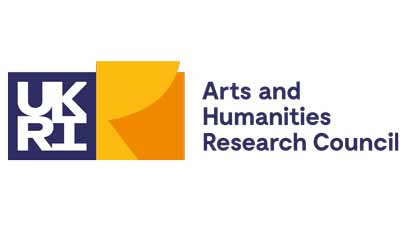Research Projects
Sensory Reading: New Approaches to Teaching and Learning GCSE English Literature
 Led by Professor Phil Shaw and Dr Scott Freer in the Department of English, ‘Sensory Reading’ aims to develop outreach opportunities arising from Phil Shaw’s AHRC Leadership Fellow project, Wordsworth 2020.
Led by Professor Phil Shaw and Dr Scott Freer in the Department of English, ‘Sensory Reading’ aims to develop outreach opportunities arising from Phil Shaw’s AHRC Leadership Fellow project, Wordsworth 2020.
Building on that project’s innovative and highly successful work with local GCSE English Literature students, this 9-month long series of integrated workshops (January-October 2023), supported by tailor-made teaching worksheets and learning resources, engages directly with teachers and pupils across 5 Leicester schools to show how an engagement with the visual, acoustic, and physical dimensions of poetry, whether embodied or imagined, can be used to enrich technical knowledge and understanding, thereby reigniting enthusiasm for the study of literature at GCSE level and beyond.
Our partners
Contact
Context
 Recruitment numbers from GCSE to A-Level English Literature are low, and the signs are of further decline. Even in affluent schools that attract pupils from middle-class areas (education deprivation characterises Leicester), the Heads of English departments are informing us that their A-level has been “axed” due to a “low take up”. In one school, fewer than 6 out of 2,000+ students opted for English A-level. When questioned in the schools that we have visited, a majority of pupils told us that they do not enjoy English.
Recruitment numbers from GCSE to A-Level English Literature are low, and the signs are of further decline. Even in affluent schools that attract pupils from middle-class areas (education deprivation characterises Leicester), the Heads of English departments are informing us that their A-level has been “axed” due to a “low take up”. In one school, fewer than 6 out of 2,000+ students opted for English A-level. When questioned in the schools that we have visited, a majority of pupils told us that they do not enjoy English.
The reasons for this disenchantment with the subject are various and complex, but teachers have spoken of their KS3 and KS4 pupils being “turned off” by the current focus on “feature spotting” with the emphasis on the formal analysis of poetry presenting a particular challenge. And then there is the question of relevance. When invited to comment on the AQA anthology, one teacher said “the poems don’t really mean anything in downtown Wigston”. A further stumbling block is the widely held belief that English is not an important subject and that further study will not lead to a well-paid job. As one teacher remarked, “English is seen [by parents] as utterly useless, almost as useless as modern languages”. When asked “what else can be done to encourage your students to undertake the A-Level?”, the teacher replied: “I don’t know. No, I don’t know – it’s been in decline for some time. [….] If you go round the other providers of post-16, they are all saying: ‘Languages is dead, dying, gone. English is next’”.
Depressingly, they saw the focus on feature spotting, knowledge acquisition, and rote-learning as little more than a means of passing a “terminal exam”. The same teacher noted further that their students “don’t have a love of reading. Do we give them every opportunity to read? Yes. Do we expose them to reading? Yes. Does it create a love of it? No”.
Activities
Led by Scott Freer, the ‘Sensory Reading’ workshops seek to reanimate the study of English by posing a series of sensory, dramatic, and sometimes provocative questions focussing on the poems studied in the AQA poetry anthology. For example, in one workshop on Blake’s ‘London’ Scott invited students to examine how they would feel if they were entrapped/alienated by “mind-forged manacles”, and how they might respond to the figure who wanders through “each chartered street” while, in the classroom, the students remain seated (voiceless and without agency) behind desks. We find that the focus on feelings rather than features has helped students to feel liberated from prescriptive readings that are often channelled through published ‘guide’ books that force through an assessed theme. The general effect has been positive, to say the least. As student feedback confirms: “The lesson blew my mind”. “Scott made reading poetry feel as if I was writing a song”. “When is he coming back?”
Teaching in this way is a moving experience because students show they can respond enthusiastically to poetry when inspired by a classroom experience that, without diminishing the importance of formal analysis, prioritises the exploration of feelings. The result has been a high demand, with requests for regular visits.